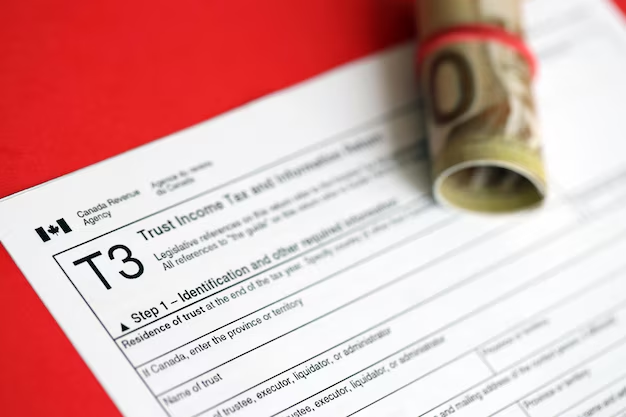Navigating Florida's Property Taxes: What Homeowners Need to Know
When you think of Florida, what comes to mind? Perhaps it's the state's beautiful beaches, vibrant cities, or its status as a popular retirement destination. What you might not immediately consider is Florida's property tax system, yet it's an important aspect for both current and prospective homeowners. Understanding how much property tax is in Florida and how it’s calculated can put your mind at ease and help you make informed financial decisions. Let's explore the fundamentals of Florida property tax, factors influencing your bill, and practical tips for homeowners.
Understanding Property Tax in Florida
The Basics of Property Tax
Property tax is a levy imposed by the government on real estate and is a fundamental revenue stream for local authorities. This tax is used to fund essential services, such as public education, law enforcement, infrastructure maintenance, and more.
In Florida, property tax rates vary significantly across counties and municipalities. Your property's market value and the local millage rate—a tax rate used to calculate local property taxes—determine your property tax bill.
How Property Tax Is Calculated
Assessed Value vs. Market Value
- The market value of a property is the estimated price it would sell for in an open market.
- The assessed value is determined by the county property appraiser. Due to various exemptions and assessments, this value may not always match the market value.
Millage Rate
- A millage rate is the amount per $1,000 of a property’s assessed value.
- Florida has millage rates that differ by locality, meaning the percentage you pay will vary depending on where your property is located.
🏠 Example: If your assessed property value is $200,000 and the local millage rate is 15, your tax bill would be (200,000 imes (15/1,000) = $3,000).
Factors Affecting Property Tax Rates
Several factors can influence the property taxes you pay:
- Location: Urban areas typically have higher tax rates due to increased demand for public services.
- Property Value Trends: Rising real estate values in your area can lead to higher property taxes.
- Local Budget Needs: A locality’s financial requirements may dictate changes in the millage rate.
Important Exemptions and Benefits
Florida offers several property tax exemptions to homebuyers, which can significantly reduce your tax burden:
Homestead Exemption
The Homestead Exemption is one of the most well-known benefits, offering up to $50,000 off the assessed value of a primary residence. This exemption can lead to substantial savings in your property tax bill.
Save Our Homes Assessment Limitation
The Save Our Homes cap limits annual property tax assessment increases to a maximum of 3% or the rate of inflation, whichever is lower. This is particularly advantageous for long-term homeowners, as it prevents tax bills from skyrocketing in rapidly appreciating markets.
Additional Exemptions
Florida provides other exemptions for different groups, such as:
- Senior citizens
- Veterans and active-duty military
- Widows and widowers
- Individuals with disabilities
📝 Each exemption has specific eligibility requirements, so reviewing the details with your local appraiser’s office is essential.
Navigating Your Property Tax Statement
Receiving your first property tax statement can be overwhelming. Here’s how to break it down:
- Understand Each Charge: Your statement will itemize how much you're paying toward various services.
- Check for Errors: Verify your assessed value and ensure all eligible exemptions are applied.
- Timely Payments: Paying early can offer discounts, while late payments may incur penalties.
Paying and Contesting Property Taxes
Payment Methods
- Online Payments: Most counties offer online platforms for convenient payment.
- Installment Plans: Florida allows for manageable installment payments rather than a single yearly payment.
- Early Payment Discounts: Discounts may be available for early payment, typically reducing the bill by up to 4%.
Contesting Your Property Tax
If you believe your property is overvalued, consider the following steps to contest your tax bill:
- Review Your Notice: Check the county’s calculations and assessments.
- Contact the Appraiser: Alert the county appraiser’s office if you suspect an error.
- Formal Appeal: File an appeal with the Value Adjustment Board if necessary.
🔍 You'll need evidence, such as comparable sales in your area, to support your claim during an appeal.
Key Takeaways for Florida Homeowners
Here's a succinct summary to help you navigate Florida's property tax landscape:
- Assessed Value: Know how your property’s assessed value impacts your taxes.
- Exemptions: Take advantage of the Homestead Exemption and other applicable benefits.
- Millage Rate: Understand your local rate and how county needs influence it.
- Due Diligence: Always review your tax statement and appeal if over-assessed.
- Payment Strategy: Consider early payment for discounts or use installment plans for convenience.
By understanding these core elements of Florida’s property tax system, you can take control of your financial planning and optimize your tax liabilities. Whether you're purchasing a new home or assessing your current one, staying informed about how property taxes are calculated and what exemptions are available will help ensure you're making smart, money-saving decisions.
As you contemplate homeownership or review your tax situation, remember that taxes are integral to maintaining Florida’s vibrant communities and essential services. By aligning your financial strategy with the state’s tax regulations, you'll be poised for more confident homeownership in the Sunshine State. 🏖️

Related Topics
- Are Property Taxes Tax Deductible
- Can I Get a Property Tax Refund
- Can I Pay Property Tax Online
- Can I Pay Property Tax With Credit Card
- Can Property Tax And Condo Fee Be Deducted In Maryland
- Can You Claim Property Taxes On Your Income Tax
- Can You Claim Property Taxes On Your Tax Return
- Can You Claim Your Property Taxes On Your Income Tax
- Can You Pay Property Tax Monthly
- Can You Totally Not Pay Property Tax Texas
